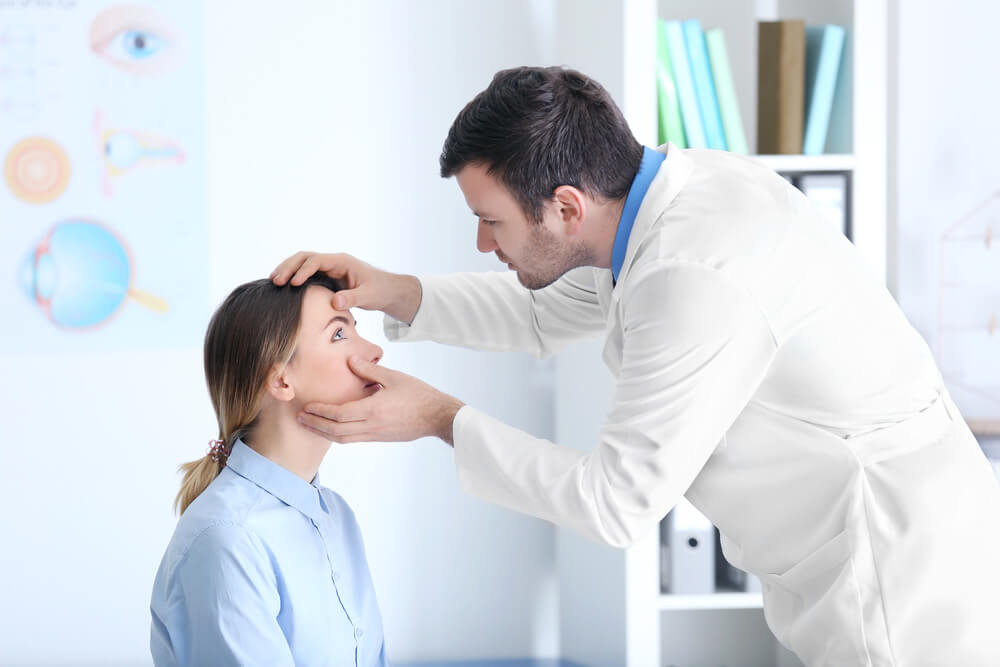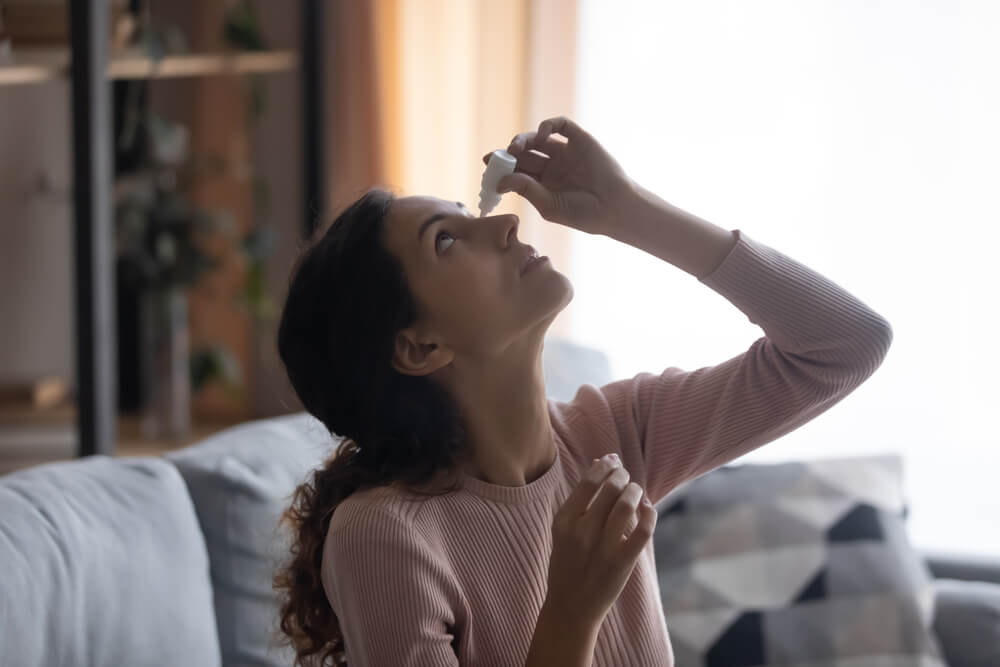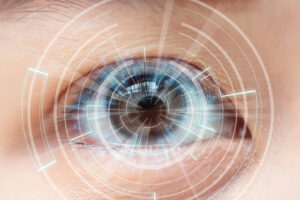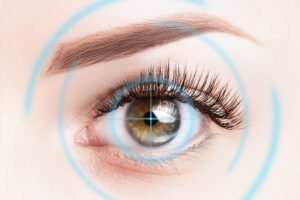
Why are my eyes itchy? Dry eyes may occur when your eyes fail to produce enough tears to stay moist or when tear production doesn’t work correctly. This may result in itchy eyes and a general feeling of discomfort, and it may also lead to vision problems.
Dry, itchy eyes are relatively common, affecting several million people in the US each year alone. Luckily, when it comes to dry eye treatment, patients have many options to get back on track.
In this blog article, we’ll look into the leading causes of burning eyes and discuss different options as well that can help you alleviate your symptoms. On the other hand, feel free to reach out to Diamond Vision if you are looking for the best treatment for dry eyes.
Dry, Itchy Eyes Diagnosis
There are several procedures and tests that can help eye specialists determine the main cause of burning eyes. They include:
- Comprehensive eye exams: These examinations usually include a complete history of the patient’s general eye (and overall) health that can help the experts determine the root cause of dry eyes.
- Tear-volume testing: the Schirmer test uses paper strips that the specialist puts under the lower eyelids, measuring the number of soaked strips by your tears. Sometimes, experts use the phenol red thread test with pH-sensitive dyes placed under to lower eyelid.
- Tear samples: These tests look for different marker changes like increases in matrix metalloproteinase-9 or decreases in lactoferrin.
- Testing for tear osmolarity: this test measures the water and particle composition of the tears. When you’re dealing with burning eyes, your tears will usually contain less water.
- Testing Blink Function with Lipiview videography
- Testing tear film lipid layer with Lipiview system
- Testing meibomian eyelid (oil) gland health with Lipiview
- The Lipiview diagnostic system and Lipiflow treatment to open up blocked oil glands are available at Diamond Vision.
Dry Eye Treatment Options

For those people who are experiencing mildly irritating itchy eyes only occasionally, simple over-the-counter eyedrops may help alleviate the discomfort and help tear production. However, in cases when the symptoms of the condition are persistent and more severe, patients may need to consider other, more elaborate options.
On that end, some dry eye treatments focus on managing the condition, reversing it, or dealing with the cause that leads to dry eyes in the first place. Other methods aim to improve the quality of your tears and stop them from draining away from the eyes rapidly.
Treating Underlying Causes
In some instances, specific medication use may be the main culprit behind having itchy eyes. In these cases, your doctor might advise using a different compound.
On the other hand, if you have ectropion, a condition when your eyelids are turned outwards, your eye specialist may recommend specific oculoplastic surgery to treat the issue.
Medications for Dry Eye Treatment
There are several prescription options for treating burning and itchy eyes.
- Eyelid inflammation-reducing compounds improve the oil gland’s function to secrete oil into the tears.
Tobradex ointment would be one example of this.
- Eyedrops that control cornea inflammation that might be a temporary solution as the medications may cause side effects.
Prednisolone Acetate and Lotoprednol are examples.
- T-Cell Modulators to reduce dry-eye-related inflammation of the eye and increase tear production over time. Cyclosporine derivatives such as Restasis and Cequa are examples. Xiidra is another medicine that works to reduce T cell activity by binding to one of its receptors.
- Different eye inserts that act like artificial tears, these inserts will slowly dissolve, releasing the same substances eyedrops contain to lubricate the eyes.
- Drugs that stimulate tear production, which can come in the form of eye drops, gels, or pills.
- Eyedrops made from blood (your own) or autologous blood serum drops that might be used when the burning eyes are severe, and no other treatment is able to ease the symptoms. These eyedrops will have a processed sample of your blood with the red blood cells removed and mixed with a salt solution.
Other Treatment Options
- Closing the tear ducts: To reduce tear loss, the doctor may suggest this treatment, keeping the tears in your eyes for longer.
- Special contacts: A new generation of contact lenses is available that can help with burning eyes, called bandage or scleral lenses. These protect the eye’s surface and can trap moisture.
- Eyelid massage and light therapy: intense-pulsed light therapy and massage can help alleviate the symptoms of itchy and dry eyes.
- Removing oil gland blockage: Eye masks and warm compresses that you use daily can help you with clearing up the oil glands. Often eye specialists may recommend using a thermal pulsation device for this.
Home Remedies

As said before, mild symptoms of burning eyes may be successfully addressed with OTC eye drops. In the case of chronic dry eyes, the usage of eye drops might be recommended by some experts to keep the eyes lubricated even when they feel fine.
Still, even when talking about nonprescription products for itchy eyes, you should consult your doctor before opting for treatment.
Consider the factors below when choosing an OTC product:
- Nonpreservative and preservative drops: the first type usually comes in packages with single-use vials that you need to throw away after use. If you use them more than four times a day, they are considered safe. Preservative drops can also be used up to four times a day, but if you are using them more frequently, they may lead to irritation.
- Drops for reducing redness: If you suffer from dry eyes, try to steer clear from these as prolonged use may lead to irritation.
- Ointments vs. drops: Ointments coat the eye, meaning that the relief from dry eyes will be longer-lasting, but they may cause clouding vision. As such, they might be best for use before going to sleep.
Lastly, you can opt for gently washing the eyelids if you’re dealing with blepharitis or other conditions.
Use a warm, wet washcloth and apply it to your eyes and hold it over them for four-five minutes. If the cloth cools, rewet it with warm water. Rub the fabric over the eyelids gently. Once one, use a mild soap or baby shampoo and gently massage your closed eyes around the base of your lashes with your fingerti[s where you’ve applied the cleanser. When done, rinse thoroughly.
Opt For Expert Assistance
While milder symptoms are easy to manage with over-the-counter solutions, it’s still a good idea to consult a professional to ensure you’re using the right product and don’t cause additional problems to your vision and eye health.
On the other hand, if you have any concerns about dry eyes or experiencing persistent and prolonged symptoms that interfere with your everyday life and even starting to experience vision options, ensure that you schedule a consultation with an eye specialist as soon as possible.
Before visiting your doctor, list out the symptoms your experiencing, note any lifestyle changes and create a list of the meds you are already taking.
Lastly, if you are looking for the best experts who can recommend the best treatment options, feel free to reach out to one of our practices. The team at Diamond Vision will be more than ready to cater to your needs and help you get back on track with your eye health.
Contact Us
If you have more questions about LASIK procedures, get in touch with us.
Related Blogs

Timing is Everything: When to Consider LASIK After Nursing for Optimal Results
Timing is everything when considering LASIK eye surgery after nursing, and understanding the optimal period for this procedure is vital for both mother and baby.

Cataract Surgery: Restoring Clarity and Confidence
Cataract surgery is a transformative procedure that offers a new lease on clear vision and renewed confidence. As cataracts cloud the eye’s lens, causing blurred

Intralase LASIK Explained: What to Expect Before, During, and After the Procedure
Intralase LASIK is a cutting-edge procedure that offers a safe, effective, and precise way to enhance vision compared to traditional LASIK methods. Understanding what to
